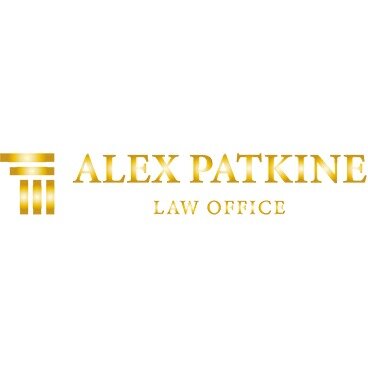Best Project Finance Lawyers in Haifa
Share your needs with us, get contacted by law firms.
Free. Takes 2 min.
List of the best lawyers in Haifa, Israel
About Project Finance Law in Haifa, Israel
Project finance is a specialized area of law focused on the funding, development, and operation of large-scale projects such as infrastructure, energy, and transportation. In Haifa, Israel, project finance law plays a significant role in supporting the city’s robust economic and infrastructural growth. This legal field involves multi-party agreements, risk allocation, and compliance with local and international regulations. Haifa, known for its port, technology sectors, and development projects, is often the site for significant undertakings that require careful legal structuring of financial arrangements. Project finance law helps ensure projects are bankable, risks are managed, and all parties - including sponsors, lenders, and government entities - meet their obligations efficiently and lawfully.
Why You May Need a Lawyer
Engaging a lawyer versed in project finance in Haifa is essential for navigating complex financial, regulatory, and contractual issues surrounding major projects. Common situations where legal help is needed include:
- Drafting and negotiating financing agreements for large-scale construction or infrastructure projects
- Structuring public-private partnerships (PPP) between government bodies and private investors
- Conducting due diligence to identify and mitigate legal and financial risks
- Ensuring compliance with local zoning, environmental, and corporate laws
- Handling disputes between contractors, sponsors, lenders, or regulatory bodies
- Managing cross-border transactions and coordinating with international investors or finance sources
Local Laws Overview
Project finance in Haifa operates within the broader Israeli legal framework, which is influenced by both civil law and aspects of common law. Key aspects of local laws relevant to project finance include:
- Public Procurement Laws: Governing how government contracts are awarded and managed
- Planning and Building Laws: Dictating requirements for obtaining permits and adhering to zoning regulations
- Corporate and Securities Laws: Regulating the formation of entities and investment vehicles used in project finance structures
- Banking and Finance Regulations: Outlining permissible lending practices and the enforcement of security interests
- Environmental Laws: Establishing standards for environmental assessment and compliance, vital for infrastructure and energy projects
- Tender Laws: Setting procedures for public tenders, which are common in government-backed projects
- Tax Laws: Affecting the structuring of financing and investment returns
Frequently Asked Questions
What is project finance?
Project finance is a method of funding in which the project's assets, rights, and interests are used as security for the loan, rather than relying solely on the sponsors' balance sheets.
Why is project finance important in Haifa?
Haifa serves as a hub for infrastructure, energy, maritime, and technology projects. Project finance structures allow for the development of large ventures while managing financial and legal risks.
Who are the typical parties involved in a project finance transaction?
Typical parties include project sponsors, lenders (often banks or financial institutions), contractors, government authorities, and sometimes investors or insurers.
What legal documents are involved in project finance?
Common documents include loan agreements, shareholder agreements, security documents, concession contracts, and construction or operation agreements.
How is risk allocated in project finance agreements?
Risks are allocated among parties through contractual provisions, with each party generally assuming the risks it is best equipped to manage, such as construction, operation, or market risks.
What are the main legal risks in project finance?
Legal risks include non-compliance with permits and regulations, changes in law, enforceability of contracts, and potential disputes among stakeholders.
Are foreign investors allowed to participate in project finance in Haifa?
Yes, foreign investors frequently participate in large-scale projects in Haifa, although they must adhere to local laws, including foreign investment and competition regulations.
What role do public-private partnerships (PPP) play?
PPP arrangements allow the public and private sectors to collaborate on project development, particularly in infrastructure, leveraging private sector funding and expertise.
How long does it take to structure and close a project finance deal?
The process can take several months to over a year, depending on the project's complexity, regulatory approvals, negotiations, and financial arrangements.
What should I do if a dispute arises during a project?
Consult with a lawyer specializing in project finance to review contracts, pursue negotiation, or consider dispute resolution methods like arbitration or litigation if necessary.
Additional Resources
Several organizations and bodies provide resources and guidance related to project finance in Haifa and across Israel:
- Israeli Ministry of Finance - PPP and infrastructure division
- Haifa Municipality - Planning and Construction Committee
- Israel Securities Authority - for investment and securities regulations
- Israel Bar Association - for locating qualified lawyers specializing in project finance
- Local chambers of commerce and trade organizations
- Relevant financial institutions and development banks operating in Israel
Next Steps
If you require legal assistance with a project finance matter in Haifa, consider the following steps:
- Identify the specific legal needs of your project, such as contract drafting, regulatory compliance, or dispute resolution.
- Gather all relevant documentation related to your project, including preliminary contracts, financial statements, and permits.
- Research and contact lawyers or law firms with a proven track record in project finance in Haifa.
- Schedule a consultation to discuss your project, ensure the lawyer understands both the local landscape and your industry, and ask about their experience with similar cases.
- Collaborate with your legal counsel to create a comprehensive legal strategy moving forward.
Lawzana helps you find the best lawyers and law firms in Haifa through a curated and pre-screened list of qualified legal professionals. Our platform offers rankings and detailed profiles of attorneys and law firms, allowing you to compare based on practice areas, including Project Finance, experience, and client feedback.
Each profile includes a description of the firm's areas of practice, client reviews, team members and partners, year of establishment, spoken languages, office locations, contact information, social media presence, and any published articles or resources. Most firms on our platform speak English and are experienced in both local and international legal matters.
Get a quote from top-rated law firms in Haifa, Israel — quickly, securely, and without unnecessary hassle.
Disclaimer:
The information provided on this page is for general informational purposes only and does not constitute legal advice. While we strive to ensure the accuracy and relevance of the content, legal information may change over time, and interpretations of the law can vary. You should always consult with a qualified legal professional for advice specific to your situation.
We disclaim all liability for actions taken or not taken based on the content of this page. If you believe any information is incorrect or outdated, please contact us, and we will review and update it where appropriate.















